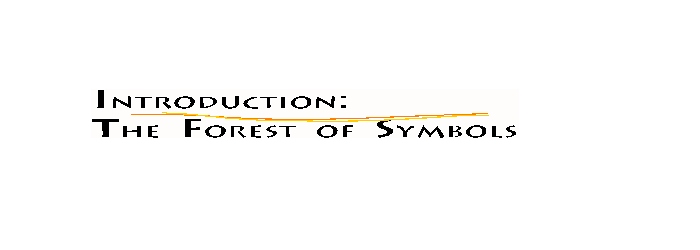

 It is common for human beings to think of their bodies, their languages, and their minds either as special creations of a supernatural agency or as the ultimate end products of a purpose-driven or teleological evolutionary process. This book will not deal with the first of these beliefs, in that it has a purpose different from but not necessarily at odds with religious explanation. It will, instead, attempt to provide an alternative to the second belief, with respect to the origin of language. In pursuit of this goal, it will take an explicitly Darwinian perspective on the origin and evolution of the human capacity for language and abstract thought. In this context, the term Darwinian should be taken to imply that evolution of all the earth's organisms is fundamentally undirected, involving the creation of new traits through random mutations of the genetic material (see fig. 1). This does not mean that anything is possible—limitations are certainly imposed on the directions of later evolutionary paths by earlier occurrences. In this sense, evolutionary change may be said to be "channeled." One example of this that will be discussed in greater detail in chapter 1 is that of human bipedalism, an unusual form of locomotion that may have been made possible by an earlier locomotor adaptation of apes. However, the Darwinian perspective implies that at no point was the evolution of bipedalism predictable or inevitable.
It is common for human beings to think of their bodies, their languages, and their minds either as special creations of a supernatural agency or as the ultimate end products of a purpose-driven or teleological evolutionary process. This book will not deal with the first of these beliefs, in that it has a purpose different from but not necessarily at odds with religious explanation. It will, instead, attempt to provide an alternative to the second belief, with respect to the origin of language. In pursuit of this goal, it will take an explicitly Darwinian perspective on the origin and evolution of the human capacity for language and abstract thought. In this context, the term Darwinian should be taken to imply that evolution of all the earth's organisms is fundamentally undirected, involving the creation of new traits through random mutations of the genetic material (see fig. 1). This does not mean that anything is possible—limitations are certainly imposed on the directions of later evolutionary paths by earlier occurrences. In this sense, evolutionary change may be said to be "channeled." One example of this that will be discussed in greater detail in chapter 1 is that of human bipedalism, an unusual form of locomotion that may have been made possible by an earlier locomotor adaptation of apes. However, the Darwinian perspective implies that at no point was the evolution of bipedalism predictable or inevitable.The most basic assumption of such a perspective is that the current outcomes of such processes are not predictable from knowledge, no matter how detailed, of initial conditions. Many rational people consider this sort of indeterminacy to be emotionally and philosophically unacceptable, and the usual alternative is to propose that evolution is teleological—that is, directed by some ultimate purpose or toward some predetermined design. For example, Father Pierre Teilhard de Chardin, a French priest and paleoanthropologist, proposed a teleological evolutionary alternative to Darwin in The Phenomenon of Man. According to Teilhard de Chardin's formulation, human evolution could be seen as a sequence of steps toward ever more perfect forms.
To this need for certainty, Darwin had what may still be the most eloquent reply:
When we no longer look at an organic being as a savage looks at a ship, as something wholly beyond his comprehension; when we regard every production of nature as one which has had a long history; when we contemplate every complex structure and instinct as the summing up of many contrivances, each useful to the possessor, in the same way as any great mechanical invention is the summing up of the labor, the experience, the reason, and even the blunders of numerous workmen; when we thus view each organic being, how far more interesting, I speak from experience, does the study of natural history become!
Darwin went on to write that "there is grandeur in this view of life" as a historical process, rather than an unfolding of predetermined structure, "with its several powers, having been originally breathed by the creator into a few forms or into one; and that, whilst this planet has gone cycling on according to the fixed law of gravity, from so simple a beginning endless forms most beautiful and most wonderful have been, and are being evolved."
Many consider language to be the crowning achievement of human evolution, perhaps the one ability that defines our humanity more than any other. The central dogma of modern biology is that no characteristic of a living organism can be adequately understood in the absence of an understanding of its evolutionary history. If we are to take the Darwinian position seriously, then we must look for the origins of language and, hence, the key to understanding its essential characteristics in the history of our species. In that spirit, this book will attempt to follow a set of principles set forth in the first chapter—principles derived mainly from evolutionary biology. It will also address a series of questions that deviate somewhat from those usually posed by linguists. In this regard, it is necessary to acknowledge that standard linguistics, with some exceptions, suggests that the development of the individual, or ontogeny, and the development of the species, or phylogeny, are both teleological with respect to language. These ideas, in turn, are derived from the notions that languages are best viewed as closed, formal systems, and that everything that is linguistically important can be expressed through speech.